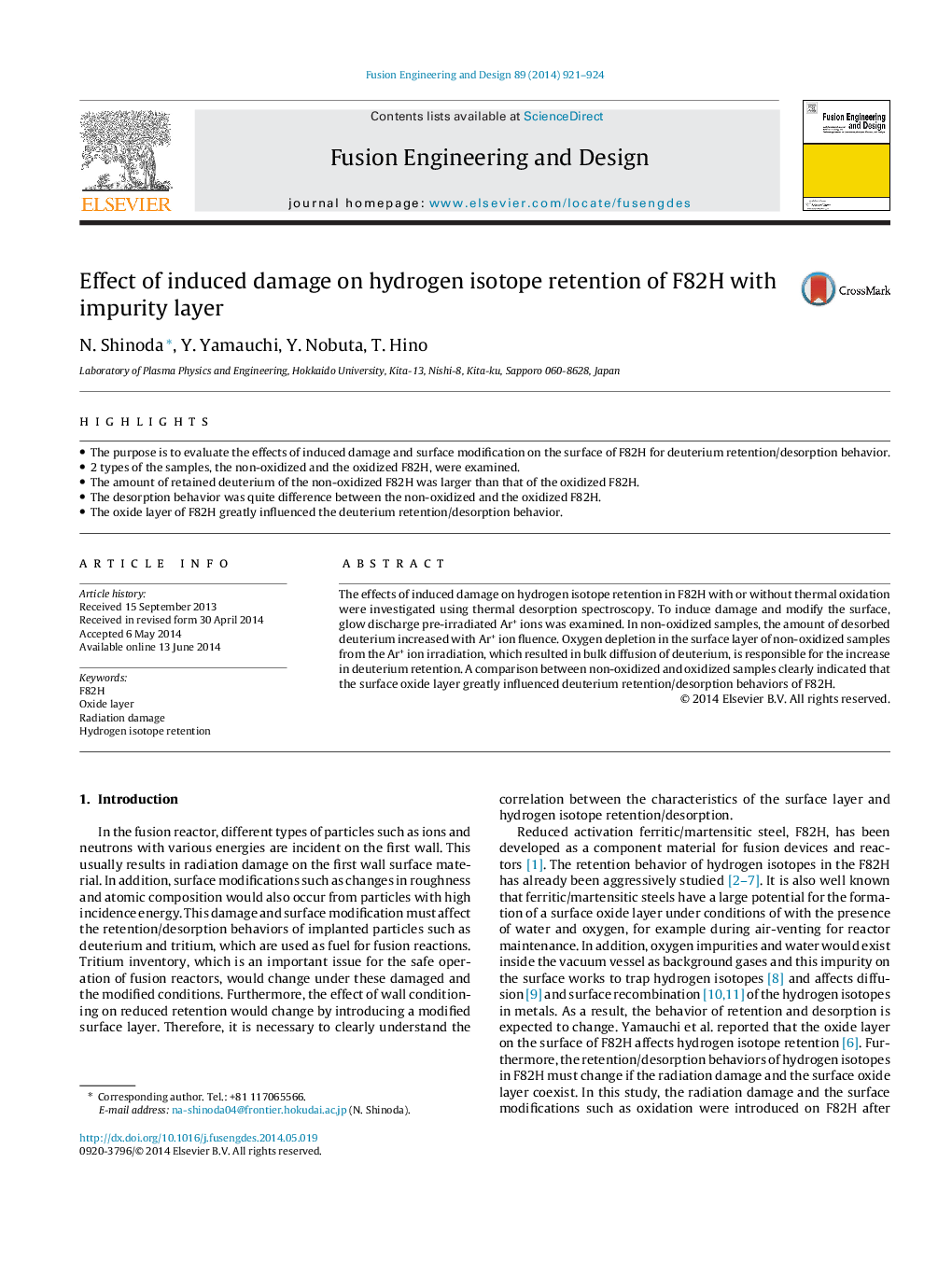| Article ID | Journal | Published Year | Pages | File Type |
|---|---|---|---|---|
| 271154 | Fusion Engineering and Design | 2014 | 4 Pages |
•The purpose is to evaluate the effects of induced damage and surface modification on the surface of F82H for deuterium retention/desorption behavior.•2 types of the samples, the non-oxidized and the oxidized F82H, were examined.•The amount of retained deuterium of the non-oxidized F82H was larger than that of the oxidized F82H.•The desorption behavior was quite difference between the non-oxidized and the oxidized F82H.•The oxide layer of F82H greatly influenced the deuterium retention/desorption behavior.
The effects of induced damage on hydrogen isotope retention in F82H with or without thermal oxidation were investigated using thermal desorption spectroscopy. To induce damage and modify the surface, glow discharge pre-irradiated Ar+ ions was examined. In non-oxidized samples, the amount of desorbed deuterium increased with Ar+ ion fluence. Oxygen depletion in the surface layer of non-oxidized samples from the Ar+ ion irradiation, which resulted in bulk diffusion of deuterium, is responsible for the increase in deuterium retention. A comparison between non-oxidized and oxidized samples clearly indicated that the surface oxide layer greatly influenced deuterium retention/desorption behaviors of F82H.
